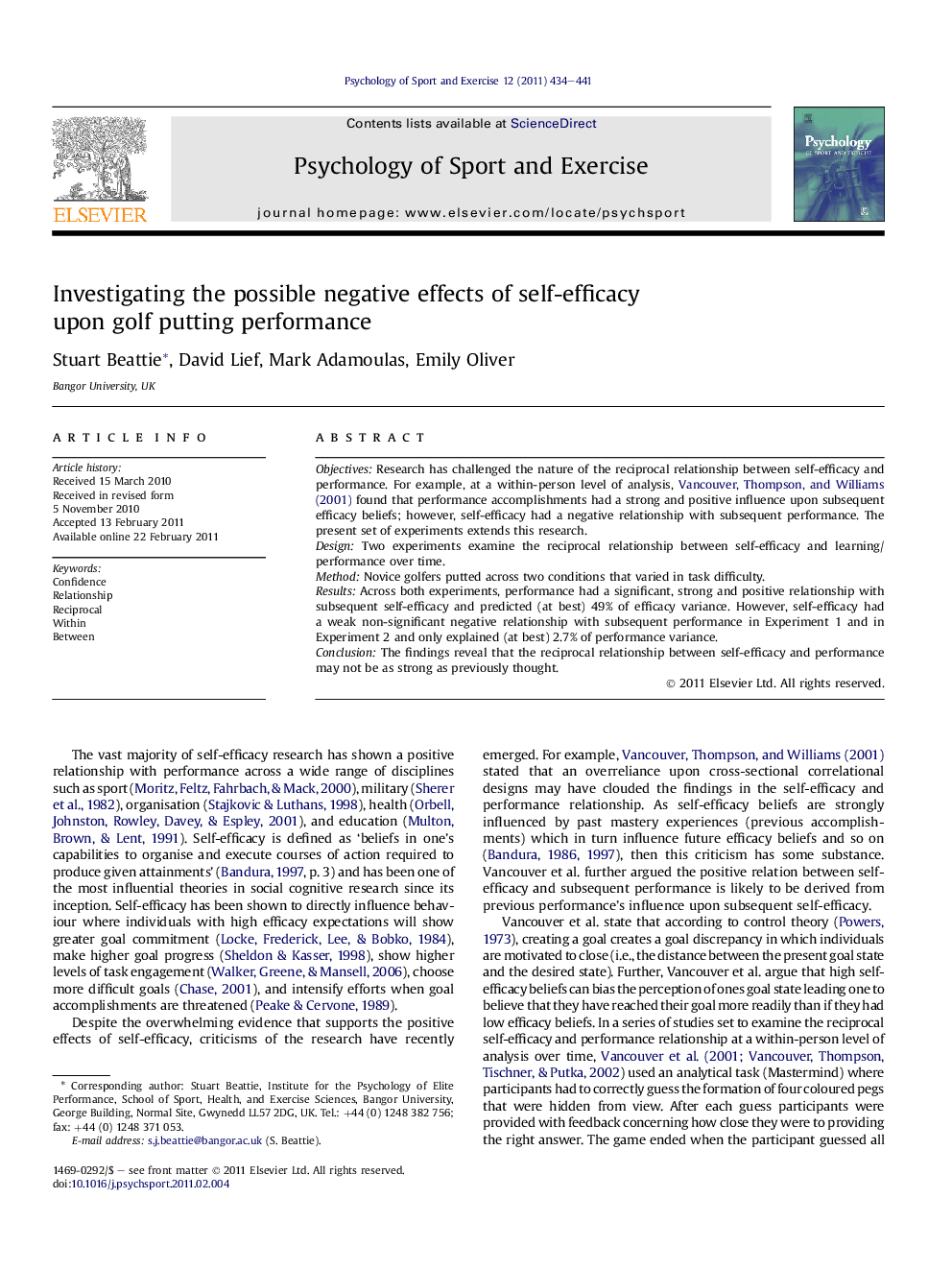| Article ID | Journal | Published Year | Pages | File Type |
|---|---|---|---|---|
| 894427 | Psychology of Sport and Exercise | 2011 | 8 Pages |
ObjectivesResearch has challenged the nature of the reciprocal relationship between self-efficacy and performance. For example, at a within-person level of analysis, Vancouver, Thompson, and Williams (2001) found that performance accomplishments had a strong and positive influence upon subsequent efficacy beliefs; however, self-efficacy had a negative relationship with subsequent performance. The present set of experiments extends this research.DesignTwo experiments examine the reciprocal relationship between self-efficacy and learning/performance over time.MethodNovice golfers putted across two conditions that varied in task difficulty.ResultsAcross both experiments, performance had a significant, strong and positive relationship with subsequent self-efficacy and predicted (at best) 49% of efficacy variance. However, self-efficacy had a weak non-significant negative relationship with subsequent performance in Experiment 1 and in Experiment 2 and only explained (at best) 2.7% of performance variance.ConclusionThe findings reveal that the reciprocal relationship between self-efficacy and performance may not be as strong as previously thought.
► The present study examined the reciprocal relationship between self-efficacy and performance. ► The study examined this relationship in an easy and a more difficult golf putting task. ► Results revealed a strong relationship between performance and subsequent self-efficacy. ► However, self-efficacy failed to significantly account for any subsequent performance variance. ► The reciprocal relationship between self-efficacy and performance is questioned.
